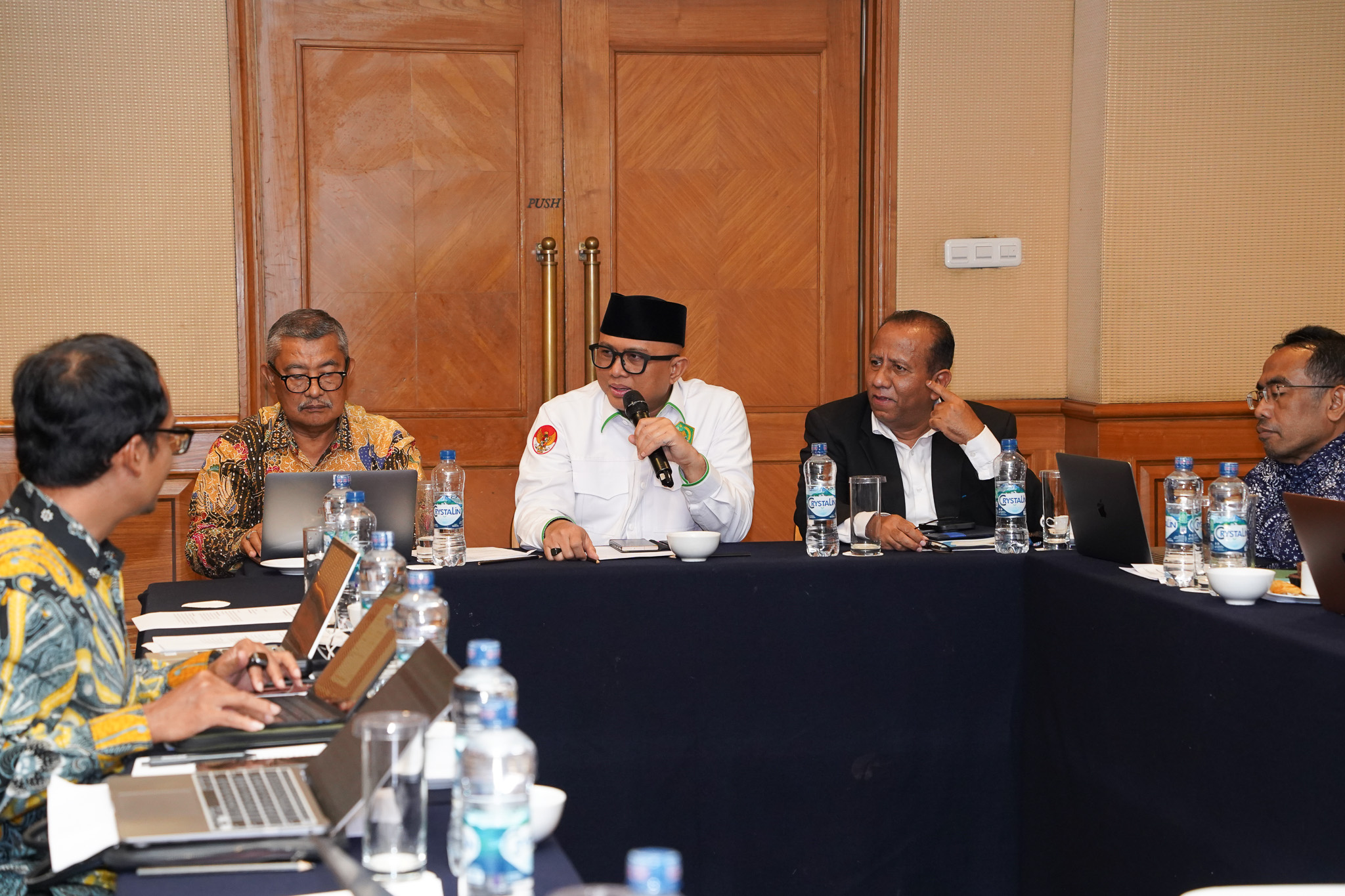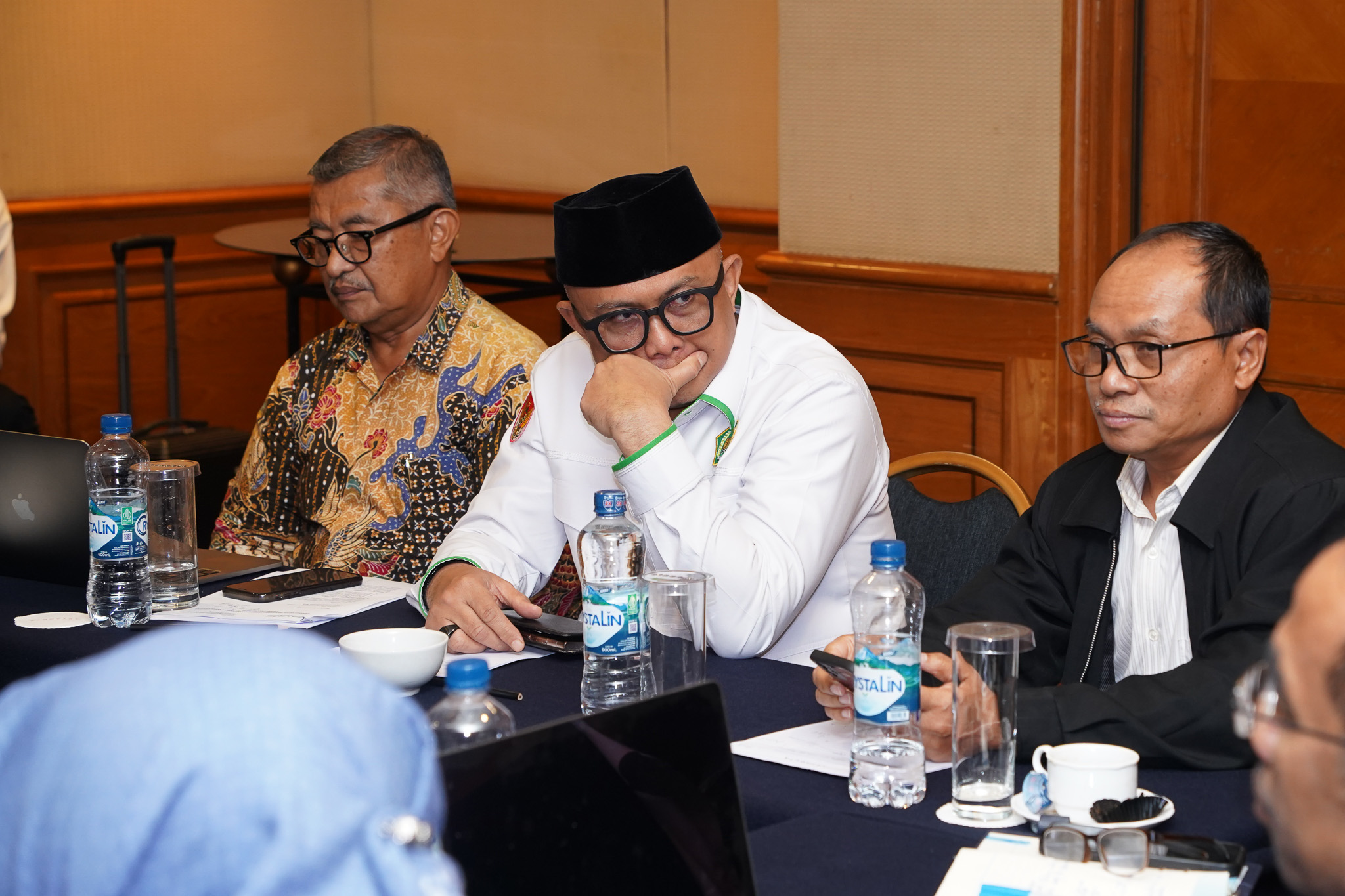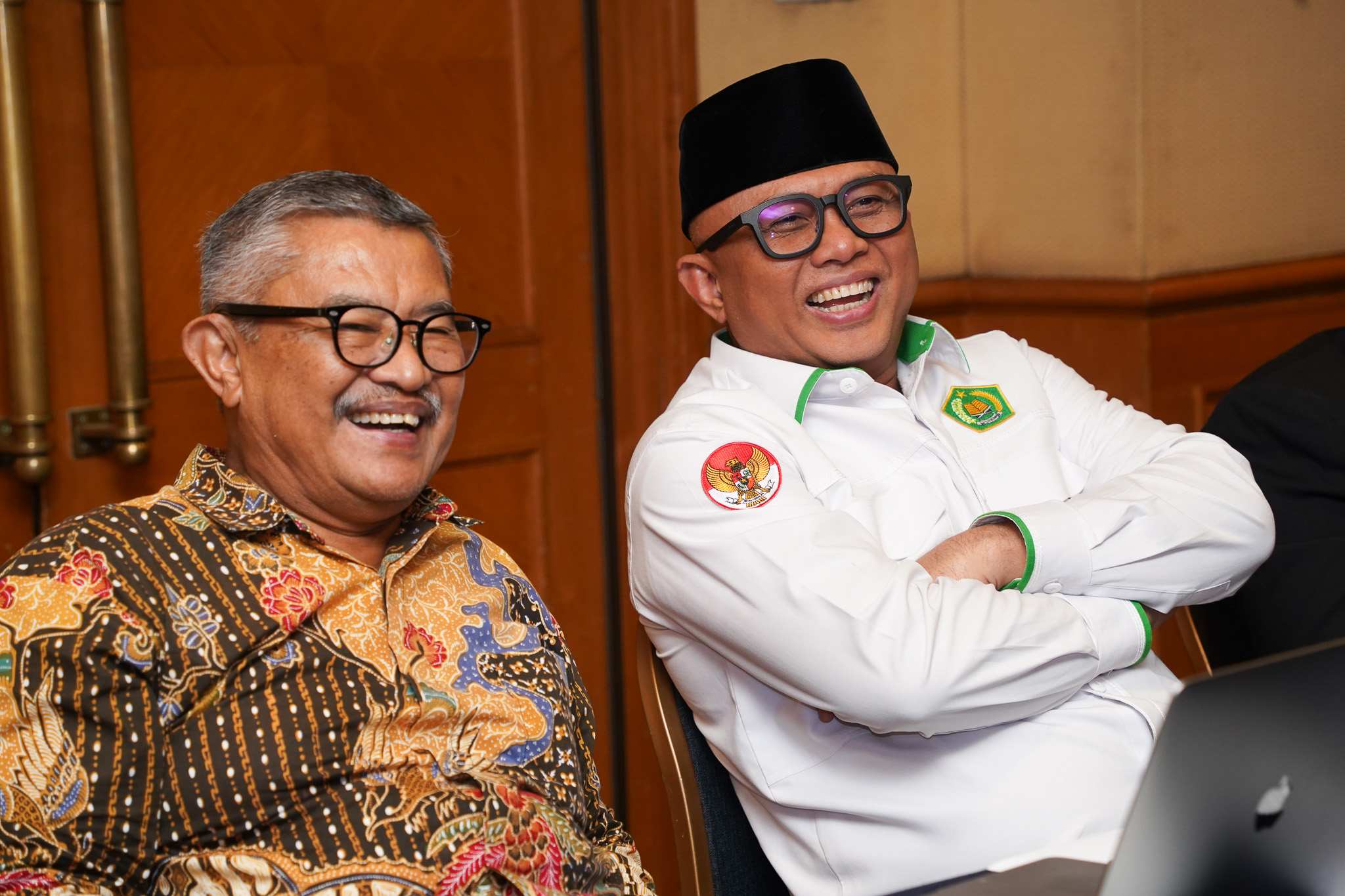Contributor: Supriyono | Photo: Achmad Jatnika

Prof. Dr. M. Arskal Salim GP., M.Ag., Secretary of the Directorate General of Islamic Education at the Ministry of Religious Affairs, praised the initial success of the Annual International Conference on Islam, Science and Society (AICIS+) 2025, noting its growing global resonance and its potential to serve as a benchmark for future international conferences.
“I think this is a remarkable achievement. Following the kickoff, the echo of AICIS+ 2025 has spread everywhere,” Prof. Arskal said. “We promoted and publicized it through social media and every available channel, even forwarding it through campus groups, which created significant interest. Importantly, it also attracted attention from abroad, with submissions from 31 countries.”
The call-for-papers for AICIS+ 2025 drew a record 2,434 abstracts, of which 2,198 were validated after a rigorous review process. Prof. Arskal acknowledged that preparing and reviewing such a large volume of abstracts was “extremely challenging,” requiring meticulous evaluation, particularly in light of evolving issues such as the use of artificial intelligence in academic writing.

“I requested that the accepted abstracts truly reflect the quality of AICIS+ 2025,” he added. “This is crucial because the scope of this conference is vast and forward-looking.”
Looking ahead, Prof. Arskal emphasized that AICIS+ 2025, hosted by Universitas Islam Internasional Indonesia (UIII), should become a benchmark for the future.
“What UIII is doing through AICIS+ 2025 can serve as a benchmark for future AICIS conferences. This can be a reference point—if you want to organize a high-quality AICIS, this is the benchmark,” he affirmed.
With its record-breaking submissions, wide international participation, and rigorous quality standards, AICIS+ 2025 is not only amplifying Indonesia’s role in global academic discourse but also shaping the model for how international scholarly gatherings can be conducted with excellence.


The Annual International Conference on Islam, Science, and Society
Copyright © 2025 Universitas Islam Internasional Indonesia